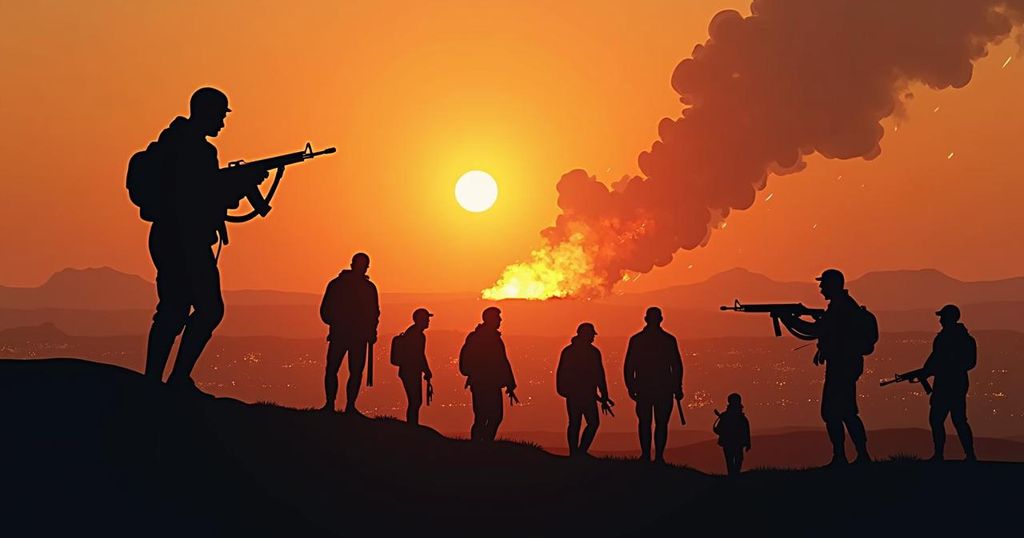The assassination of Hassan Nasrallah significantly escalates the conflict between Hezbollah and Israel, with uncertain repercussions for regional stability. Hezbollah faces immense pressure to retaliate despite recent losses, while Iran considers its response through allied militias. Israel remains committed to its offensive against Hezbollah, potentially leading to widespread conflict.
Following the assassination of Hassan Nasrallah, Hezbollah’s longstanding leader, the landscape of the ongoing conflict in Lebanon has drastically altered, heightening concerns of an expansive regional conflict involving Iran and the United States. As Hezbollah grapples with significant losses within its leadership and operational capabilities, the future actions of Hezbollah, Israel, and Iran remain uncertain but critical to monitor. Hezbollah, already weakened by recent setbacks, has vowed to persist in its fight against Israel. Despite suffering the loss of numerous commanders and destruction of communication systems and weaponry, the group retains a formidable fighting force comprised of seasoned veterans, alongside an arsenal of precision-guided missiles capable of striking deep into Israeli territory. The group is under immense pressure to respond against what they perceive as aggression, which could result in a large-scale missile strike that might provoke a severe Israeli counter-response affecting Lebanese infrastructure. Conversely, Iran perceives Nasrallah’s assassination as a substantial affront and has entered a state of mourning. The regime’s hardliners may urge a response through its extensive network of allied militias across the Middle East, potentially inciting coordinated attacks against Israeli and American interests. Nevertheless, Iran is expected to exercise caution to avoid precipitating a full-scale war that would prove disadvantageous. Israel appears resolute in its military objectives, showing no intention of adhering to proposed ceasefire agreements. With the Israeli Defense Forces assessing that Hezbollah is vulnerable, continued military engagement is imminent, likely including ground operations aimed at eradicating Hezbollah’s missile capabilities. Such maneuvers, however, may rekindle the historic complexities and potential prolonged military entanglements, reminiscent of previous conflicts. In summary, the dynamics following Nasrallah’s assassination signal increased volatility in the region, with potential avenues for retaliation and escalation being explored by all parties involved. The strategic decisions made by Hezbollah, Israel, and Iran will be pivotal in determining the next phase of this unfolding conflict.
The ongoing conflict involving Hezbollah and Israel remains a focal point of tension in the Middle East, particularly given the historical animosities and the broader geopolitical implications of military actions involving Iran and the United States. The assassination of Hassan Nasrallah, a key figure of Hezbollah, has prompted speculation regarding the future strategic movements of these entities, influenced by prior incidents, military capabilities, and operational strategies cultivated over years of conflict. The subsequent responses of Hezbollah, Iran, and Israel are critical to understanding the potential ramifications for regional stability.
The assassination of Hezbollah leader Hassan Nasrallah marks a significant escalation in the conflict, with profound implications for the actions of Hezbollah, Iran, and Israel. Hezbollah is expected to retaliate despite its weakened state, while Iran may mobilize its allied militias to respond provocatively without instigating a direct war. Concurrently, Israel will likely continue its military offensive without regard for ceasefire proposals. These interconnected decisions could usher in a period of intensified conflict and geopolitical instability in the region.
Original Source: www.bbc.com







